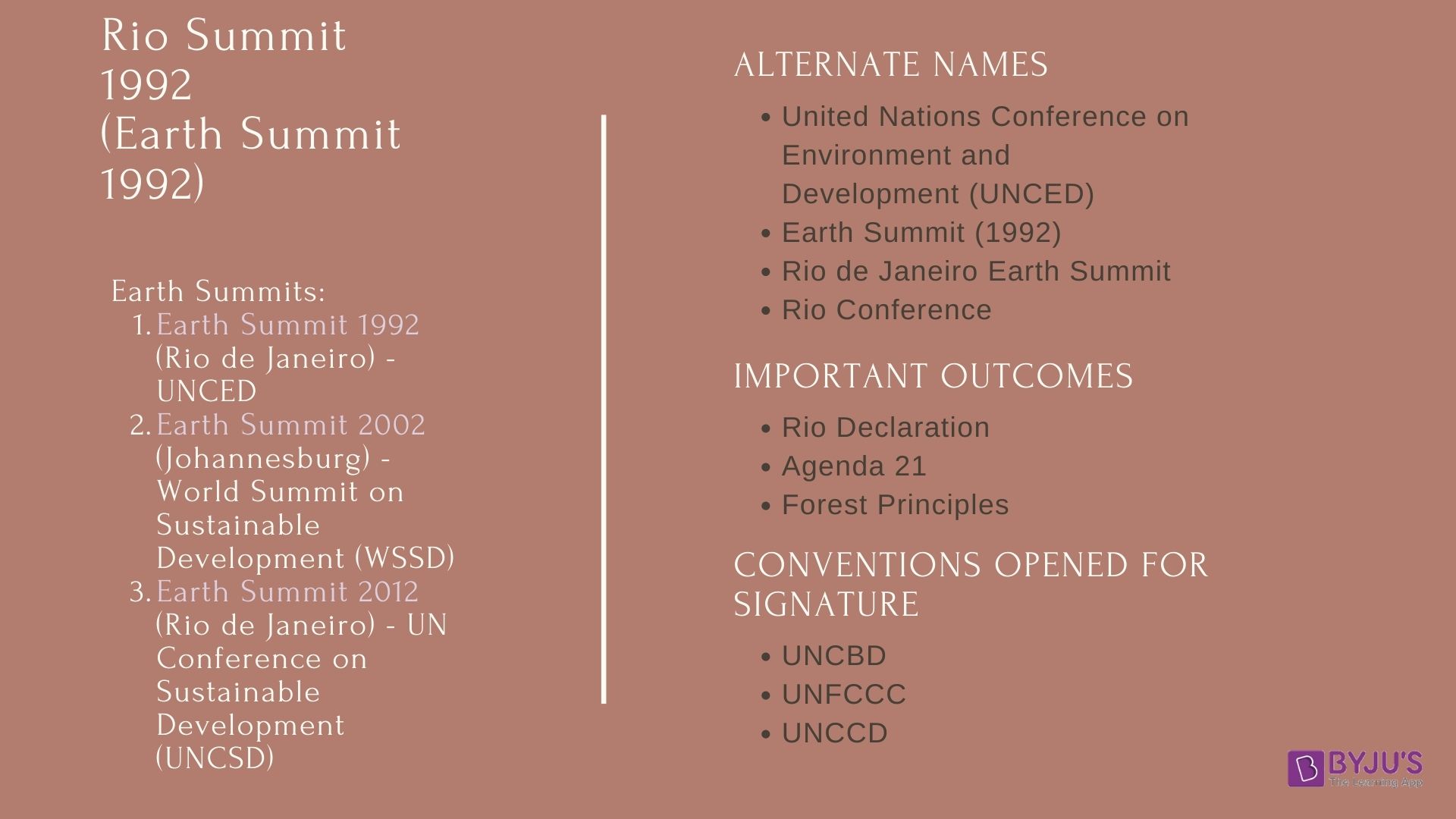The United Nations Conference on Environment and Development (UNCED), also known as the Rio de Janeiro Earth Summit, Rio Summit, Rio Conference, and Earth Summit (Portuguese: ECO92), was a major United Nations conference held in Rio de Janeiro (Brazil) from 3 to 14 June 1992. 172 governments participated, with 116 sending their heads of state or government.
Do you know the three conventions that were the result of the Rio Summit 1992? Read about them in the linked articles below:
| UN Convention on Biological Diversity (UNCBD) |
| UN Framework Convention on Climate Change (UNFCCC) |
| UN Convention to Combat Desertification (UNCCD) |
Rio Summit 1992 UPSC Notes:-Download PDF Here
Aspirants would find this article very helpful while preparing for the IAS Exam, especially the environment and ecology segments.
| The topic, ‘Rio Summit’ comes under UPSC Mains GS 3 of the IAS Exam covering Environment and Ecology sections.
To complement your preparation for the upcoming exam, check the following links: |
Rio Summit
Some 2,400 representatives of non-governmental organizations (NGOs) attended, with 17,000 people at the parallel NGO “Global Forum” (also called Forum Global), who had Consultative Status. A significant accomplishment of the summit was an agreement on the Climate Change Convention which in turn led to the Kyoto Protocol and the Paris Agreement. Another agreement was “not to carry out any activities on the lands of indigenous peoples that would cause environmental degradation or that would be culturally inappropriate”.

Rio Summit 1992 – Important Outcomes
The Rio Summit 1992 is also called the Earth Summit. This summit led to the development of the following documents:
- Rio Declaration on Environment and Development
- Agenda 21
- Forest Principles
The first document called the Rio Declaration, in short, contained 27 principles that were supposed to guide countries in future sustainable development. Agenda 21 is an action plan concerning sustainable development, but it is non-binding. The Forest Principles is formally called ‘Non-Legally Binding Authoritative Statement of Principles for a Global Consensus on the Management, Conservation and Sustainable Development of All Types of Forests’. It makes many recommendations for conservation and sustainable development forestry and is non-binding.
One can more of important environment conventions and protocols in the linked article.
Also, See:
| Kigali Amendment | Montreal Protocol |
| United Nations Environment Programme | Global Environment Facility |
| Nagoya Protocol | Bonn Climate Change Conference |
UPSC Preparation:

Comments